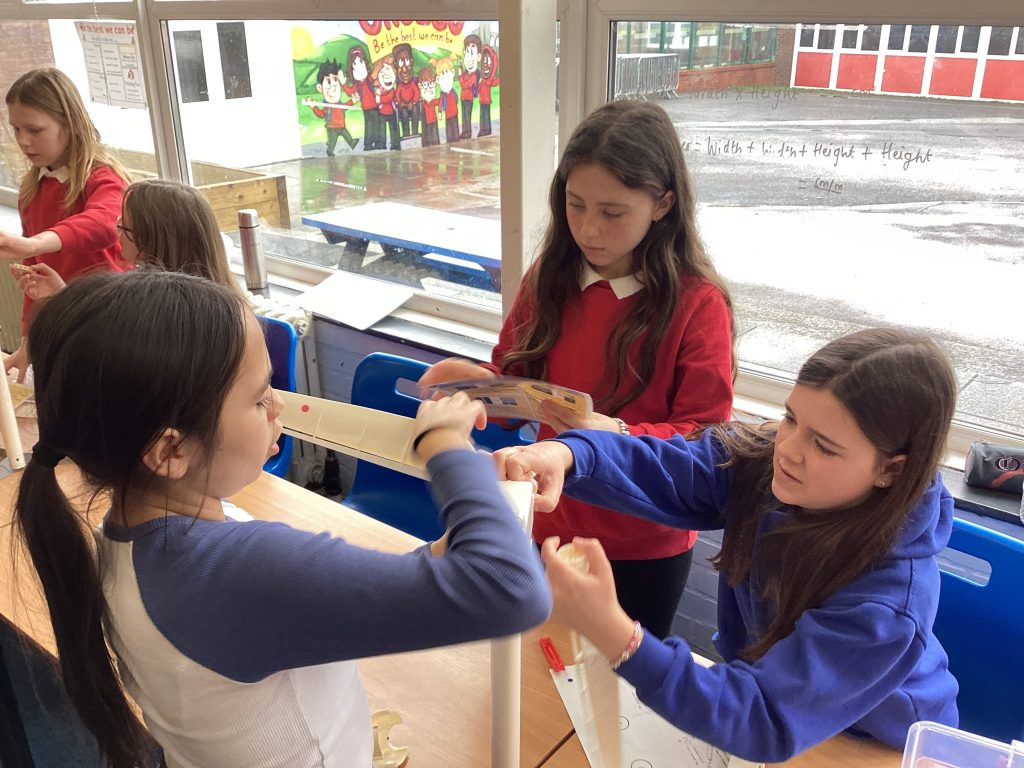Education
Guide: Dissertation vs. Thesis: Differences and Similarities

Students may confuse the terminology of different academic papers. However, the terms that are confused the most often are thesis and dissertation. These types of papers are similar indeed because they are written upon graduation and are pretty lengthy compared to ordinary home assignments. You may need to know the difference between these two terms to decide whether you want to pursue some degree or not.
However, the students should also differentiate between these two terms if they want to know how to find dissertation writing services. You can visit the link Thesis Vs Dissertation: What is The Difference? where you will learn the main difference between the two papers and will be able to order dissertation writing services for you right away. The link will lead you to the Dissertation Team website which is a quite reputable dissertation writing services near you and offers help with both, thesis and dissertation.
Dissertation vs. Thesis: Differences and Similarities
Many students find dissertations and theses similar because they may not have enough background information on two of these scholarly papers. Students who still study at schools or colleges may not delve deep into the terminology and think that thesis and dissertations are almost the same. While there is a piece of truth in it because all of these research papers are extensively long and require much time to complete they are still different.
The difference starts with the period when the students write each of these research papers. Students submit a thesis paper when they graduate from their master’s degree. Nevertheless, to get the PHD degree the students need to submit that dissertation successfully. This is the main similarity you should know about these two types of paper. We will provide you with more details below.
What Do You Understand by Dissertation and Thesis?
To know how to choose dissertation writing services you should first know the terminology. Thesis and dissertation are the research papers written by the students at the end of the course or before graduation. They are written to show the student’s expertise in the topic and the overall field they are studying. Students need to include their unique research dissertation and thesis.
Firstly, they need to research the current literature on the topic and analyze it. By analyzing the literature, the students should compile it in the specific section and connect it to their research topic. The literature review should also show the gaps which should be filled in.
Secondly, the students need to have their unique methodology and conduct the research using one of the methods: quantitative or qualitative. Based on the research method they should either interview a sample of people or use numerical data they gather to analyze some issue.
As you can see, writing such extensive research papers is not easy. However, each of them has unique features and differences which we will discuss below.
Dissertation vs. Thesis: The Real Difference
As we have already mentioned there is a huge difference between thesis and dissertation and there are many factors contributing to how to hire dissertation writer for specific services. Let’s consider them all:
- Extend of research: To write a thesis successfully the students need to know how to analyze and gather the literature. In contrast when writing a dissertation the students need to provide new series and scientific concepts to the field.
- Length: the thesis usually does not exceed 100 pages. On the other hand, dissertations can be of different scopes and can even reach up to 400 pages.
- Country: the meaning of the thesis and dissertation is different in Europe and the USA. For instance, in Europe, it is possible to get a PhD by writing a thesis. At the same time, a thesis is just one step to getting a PhD in the USA.
Therefore you should also know the unique policies of education institutions and different countries to effectively differentiate between these types of research papers.
Dissertation vs. Thesis: Similarities
Students are confused about these types of projects for a reason. Now let’s discuss the similarities of thesis and dissertation and the person who is dissertation writer knows:
- The students need to write both of these types of papers in order to graduate from different programs
- To write both of the papers the students need to complete a comprehensive research
- Two of the papers should be written with adherence to the specific structure and use of the academic language
- Professors require minimum plagiarism for both of these types of graduate projects
As you can see, you should have great research and writing skills inherent to proffesional dissertation writer to be independent from the type of paper you work on.
Where to Find Examples of Dissertation and Thesis
A good place to find examples of dissertations and learn how to write a dissertation faster is to visit professional writing websites. You can go to the sample page and look at how they have written a dissertation or thesis and to learn what is this dissertation writing services. Besides, you would also have the possibility to order help with your dissertation if you do not want to write this paper on your own. You can order help at the cheap dissertation writing services for you if you like the writing style of the writers on this platform and wish them to help you.
You can also find examples by simply searching online and looking at the papers submitted by the other students. Your professor can also provide you with examples of dissertations written by students in the previous year.
https://app.originality.ai/share/qpytxvm8bfsz2wlu
Education
Research reveals nearly half of children in Wales had additional learning needs

A NEW study has highlighted the prevalence of additional learning needs, formerly known as special educational needs, among under 16-year-olds in Wales. The findings come with a policy briefing, calling for a robust review of processes used to recognise such issues and more inclusive learning support for all children nationally.
The research and policy reports, led by the University of Bristol and funded by the Nuffield Foundation, found nearly half (47.9%) of children born in 2002/2003 were identified with some form of additional learning needs (ALN) at some point during their schooling. This was shown to have the biggest impact on academic achievement across all Key Stages of their education.
Lead author Dr Cathryn Knight, Senior Lecturer in Psychology of Education at the University of Bristol, said: “Our findings clearly challenge the notion that learning needs only affect a minority of learners. Key common factors increasing the likelihood of being identified with SEN also emerged, emphasising the importance of recognising the child’s environment and understanding their individual situation to effectively support their learning needs.”
Researchers from the University’s School of Education and Swansea University analysed data from more than 200,000 children in Wales, born between 2002 and 2009, to understand the levels of SEN and its impact on academic achievement.
Findings revealed that the earlier the additional needs emerged and were recognised, and the longer their education was spent with these known needs, the less likely they were to meet nationally expected levels of attainment.
Dr Knight said: “Our research suggests the former SEN system in Wales was unable to effectively support students to mitigate the negative impact of SEN on their grades. This underscores the substantial toll of SEN on academic achievement. To improve academic attainment levels in Wales, it is crucial to prioritise effective support for this very large group of learners.”
Learners having free school meals (FSM) throughout their education were found to be four times more likely to be identified with SEN compared to those not in receipt of free meals. Those born in the most deprived neighbourhoods were shown to be even more likely (4.6 times) to be identified with SEN.
The study also showed boys were much (5.5 times) more likely to be identified with SEN than girls. Children with higher school attendance had a lower likelihood of SEN identification and learners born in the summer, so younger in their year group, were three times more likely to be identified with SEN than those born in the autumn.
Dr Knight said: “This raises concerns about the effectiveness of SEN identification processes, particularly given the unexpectedly high number of learners identified with SEN. It suggests a potential issue of over- or under-identification of certain children.”
The main policy recommendations in the report were to prioritise inclusive educational initiatives that recognise and support all children. The substantial impact of SEN on children’s grades, raises questions about how children with learning needs can be supported to show progression within the education system. Therefore, consideration of more inclusive assessment practices is recommended. The report also calls for current methods used to identify learning need to be rigorously reviewed, with a new focus on ensuring accuracy, fairness, and inclusivity.
The research mirrors similar national findings. Evidence from the Education Policy Institute in England also found a high level (40.7%) of SEND (Special Educational Needs and Disability) identification. Other research, published in the British Educational Research Journal, has also shown that children with SEND in England are also far less likely to meet expected learning standards than their peers at Key Stage 1.
Dr Knight said: “We also need longer-term evidence within Wales and across the UK in order to develop a fuller understanding of the challenges. This includes possible systematic issues with how learning needs are recognised and their subsequent impact on attainment.”
Education
School children focus on Pembrokeshire’s renewable energy future

FENTON COMMUNITY PRIMARY SCHOOL welcomed renewable energy experts to help Year 5 and 6 learners broaden their knowledge as part of their Marine Energy Project.
During the summer term Blue Gem Wind, Pembrokeshire Coastal Forum and the Darwin Experience have discussed Pembrokeshire’s importance in the renewable energy sector and low carbon technologies with the school children.
Learners designed and built models of different anchorage structures for offshore turbines, and learnt from the Darwin Centre about the different marine organisms that might colonise them.

They pitched their design ideas, with a combination of class designs being built and deployed at the Marine Energy Test Area (META) in Milford Haven by Pembrokeshire Coastal Forum.
The visits have inspired many new ideas and possibilities for the future of the learners.
Summer Marshall (Year 6) explained: “It was a great opportunity for our designs to be actually made into something for a real-life purpose.”
“If it wasn’t for this project I wouldn’t have learned about the importance of marine habitats and how these are linked to our future,” added TJ Hill (Year 6)
“It is really important because a lot of future jobs will be based around renewable energy and technology,” said Milly Badger (Year 6).
“From having Blue Gem Wind, META and Darwin visit, it’s made me think about a job in renewable energy,” added Oscar Davies (Year 6).
Acting Executive Headteacher Gareth Thomas said: “The project has enabled development of careers and work-related experiences with our learners. Direct industry engagement has been crucial to motivate our learners to think about the future jobs in Pembrokeshire and the life they may lead here.”
Year 5 and 6 teachers Leah Hackett, Matthew Vaughan and Mike Lowde agreed that many of their pupils could work in the renewable industry in future.
“Hopefully, after this, we have a group of enthusiastic pupils who already have a keen understanding of the benefits of renewable energy and the place it holds in Pembrokeshire and the wider world,” they added.
Education
Pupils delight in ice cream treat from Pembrokeshire’s number one van

CHILDREN at Ysgol Caer Elen in Haverfordwest were treated to a delightful surprise on Tuesday when they were all given the opportunity to enjoy ice cream, generously provided by Mr McGeown and his family.
The delicious ice cream, a highlight of the school’s summer celebrations, was not just a treat for the pupils but also a testament to the McGeown family’s commitment to supporting educational projects. The funds raised by the family have been donated to the school, aimed at enhancing various school initiatives.
The joyous event was made even more special by the efforts of volunteers Martin, Sian, Amirah, Jack, and Alyannah, who served the ice cream. Their contribution ensured that the occasion was filled with a wonderful and happy atmosphere.












The school extends its heartfelt thanks to Mr McGeown and his family for their generosity and support. Their donation will play a crucial role in the continued development and success of school projects, benefiting all pupils.
“We are incredibly grateful to Mr McGeown and his family for their kindness and support,” said Mr Dafydd Hughes, the headteacher of Ysgol Caer Elen. “The ice cream treat brought immense joy to the children and added to the spirit of our summer celebrations.”
Ysgol Caer Elen, a pioneering Welsh-medium school catering to students from ages 3 to 16, prides itself on its vibrant community and commitment to high-quality education in Pembrokeshire. The school’s ethos centres on creating a caring and inclusive environment where every pupil is encouraged to achieve their best and develop their skills for the 21st century
The community looks forward to seeing the positive impact of the McGeown family’s contribution, as the school continues to thrive with the support of dedicated and caring individuals.
-

 Education5 days ago
Education5 days agoMilford Tesco worker achieves Oxford dream and lands top legal job
-

 Crime4 days ago
Crime4 days agoHaverfordwest man admits having nearly 1000 child and animal images
-

 Crime4 days ago
Crime4 days agoYouth set to appear in court over serious sexual offences
-

 Crime4 days ago
Crime4 days agoPolice investigating after man injured during altercation in cemetery
-

 Education4 days ago
Education4 days agoPupils delight in ice cream treat from Pembrokeshire’s number one van
-

 Crime4 days ago
Crime4 days agoTown centre ‘stinking of skunk’ as police strip cannabis farm
-

 Crime3 days ago
Crime3 days agoFag-butt police court summonses spark debate in Pembrokeshire
-

 News6 days ago
News6 days agoProposal to give firefighters a council tax discount to go to Cabinet



















